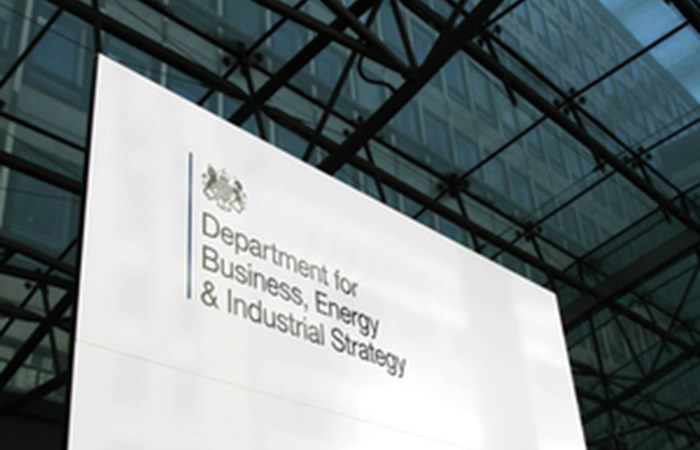govt

- Sir Philip Hampton today urged businesses to renew their commitment to diversity, extending a target to all FTSE 350 companies of filling one third of their senior leadership positions below board level with women
- Review finds FTSE 100 companies are on track to meet the target of having one third of board positions held by women by 2020, if they continue to meet progress made in the last three years
- The number of women on company boards has more than doubled since 2011
A government-backed review has today urged FTSE 350 companies to fill more board and senior leadership positions with talented women in a bid to make the UK a world-leader on gender diversity at the top of business.
Figures published today in the Hampton-Alexander Review 2017, chaired by Sir Philip Hampton and the late Dame Helen Alexander, reveal almost 28% of board positions in FTSE 100 companies are occupied by women - up from 12.5% in 2011. In that time the number of all-male FTSE 350 company boards fell to just 8 from 152.
This means that, with continued efforts, FTSE 100 companies are on course to meet the reviews 33% target for women on boards by 2020.
However, Sir Philip Hampton today called on FTSE 350 companies to quicken the pace of change on boards and extended the 33% target to senior leadership positions of all FTSE 350 companies. Previously this voluntary target only applied to FTSE 100 firms.
He said that at least 40% of appointments to senior positions will have to be filled by women over the next three years if FTSE 350 firms are to hit the ambitious targets.
Sir Philip Hampton said:
Some of our largest companies have made significant progress towards meeting these challenging targets, both on boards and in their leadership teams. We should be seeing all FTSE companies now making strides to improve the gender balance at the top.
This year we have seen progress pick up on FTSE 100 boards and go slow elsewhere. We must now renew commitment to this important issue for UK business to fully harness the under-utilised potential of the many talented women in the workplace.
Business Minister Margot James said:
Businesses have made great strides in recent years to increase senior female representation and now is a time for the business community to step up to the challenge to make the UK a world leader on this important issue.
We have seen time and time again that our most successful companies are those that champion greater diversity and inclusion, and our largest companies are stepping up their efforts on this issue in order to reap both the societal and economic benefits.
Lady Barbara Judge CBE, Chairman of the Institute of Directors:
Companies have substantially increased the number of female director appointments in the last few years, proving that there always were plenty of talented women out there just waiting to be given the chance to show they belonged in the board room.
The next challenge is to create a step-change in the proportion of senior executive positions held by women. In this way, we can build a pipeline of female talent to consolidate and build on the improvements we seen in the last few years.
Education Secretary and Minister for Women and Equalities Justine Greening said:
Tackling inequality in the boardroom and ensuring more women get into senior leadership positions is not just good business sense, it is vital to our economy.
It is great to see some of our top companies really stepping up to address gender imbalances on their boards. We are making progress, but there is still a long way to go.
That is why we all need to do our bit to improve workplace equality. The government is continuing to work with business to help remove the barriers that can hold women back in their careers. This includes being one of the first countries in the world to require all large employers to publish their gender pay and bonus data.
All FTSE 100 companies, and 96% of FTSE 250 companies excluding investment trusts, voluntarily responded to the reviews requests for their gender diversity data. The 2017 Hampton-Alexander Review gives the most accurate picture ever of diversity at FTSE 350 companies.
Notes for Editors:
- The initial report of the Hampton-Alexander Review was published in November 2016. The key recommendations were:
- 33% target for women on FTSE 350 Boards by the end of 2020
- 33% target for women on FTSE 100 Executive Committees and Direct Reports to the Executive Committee on a combined basis by 2020
- FTSE 350 companies to increase number of women roles of Chair, Senior Independent Director and into Executive Director positions on their boards.
- The government is also working to increase workplace diversity through:
- the Business Diversity and Inclusion Group, set up in February 2017 to bring together business leaders and organisations to coordinate action to remove barriers in the workplace
- introducing mandatory reporting of gender pay gaps in April 2017 and bonuses for voluntary, public and private sector employers with 250 staff or more. The UK was one of the first countries to introduce such measures.
- Cranfield University have today published their Female FTSE Board Report 2017. The supplementary report provides an overview of the representation of women on FTSE 350 boards, as well as a trend analysis of the progress made on FTSE 100 boards between 2007 and 2017.
